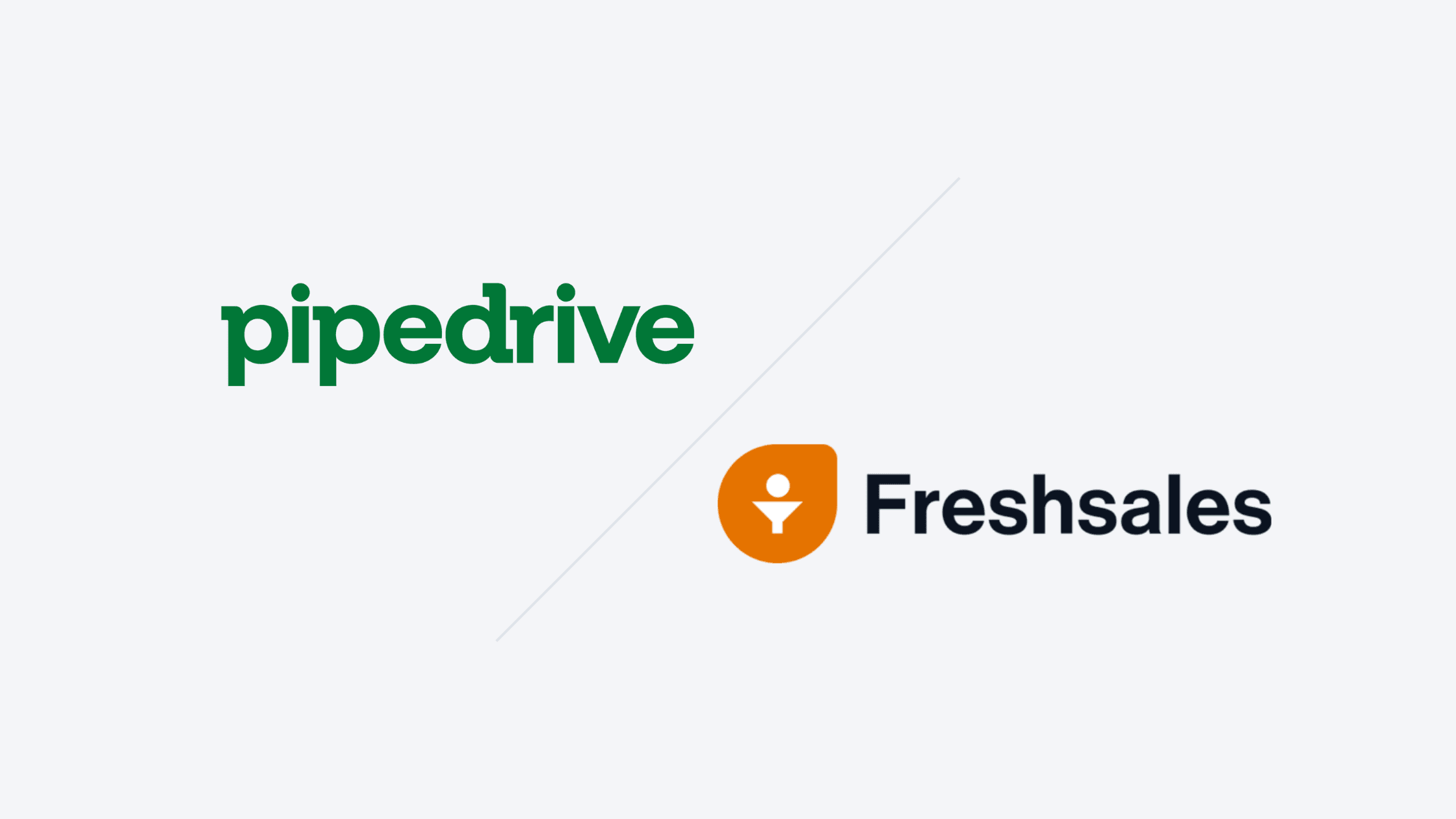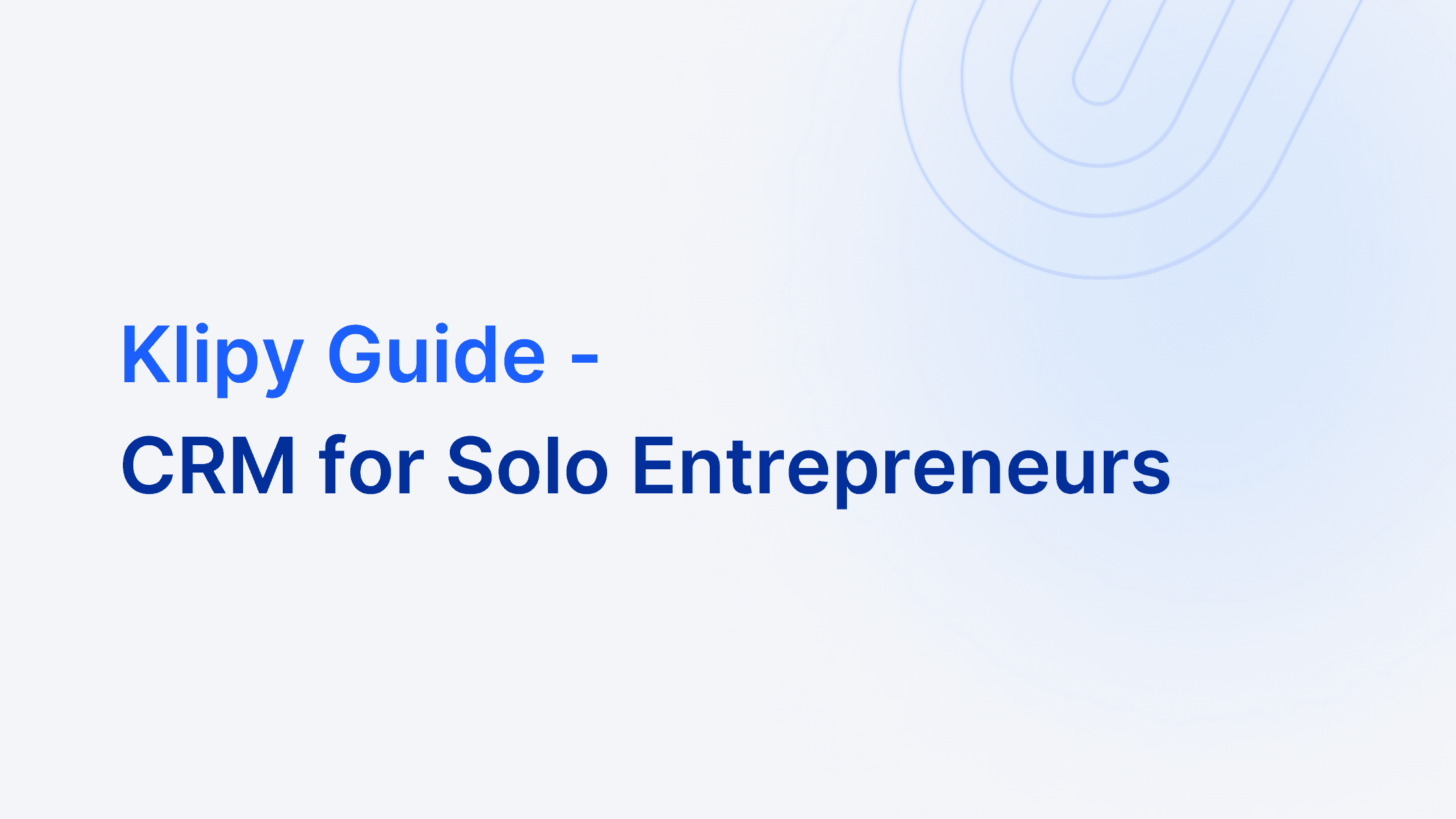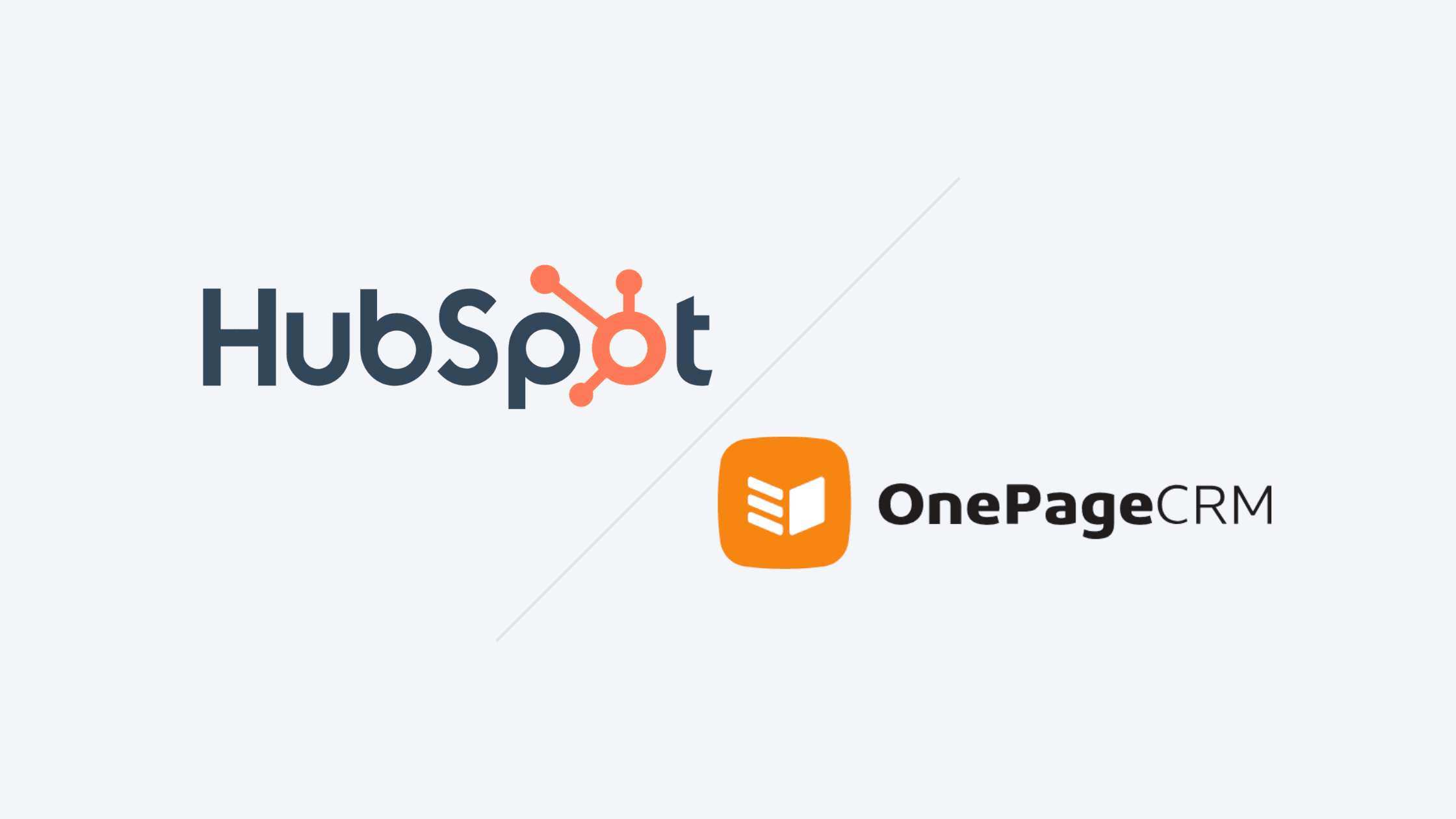Small Business
Attio vs Hubspot: CRM Comparison for Business Owners
Discover the best CRM for your small business with our detailed comparison of Attio vs HubSpot. Learn about features, pricing, scalability, and more to find the perfect CRM solution tailored to your needs.
Choosing the Right CRM for Your Business
For small business owners and startup founders, managing customer relationships is crucial for growth and long-term success. Customer Relationship Management (CRM) systems are designed to enhance how businesses handle customer data and interactions, which can significantly boost efficiency and help businesses scale. When you describe CRM in the context of small businesses, it’s all about centralizing customer information, streamlining sales processes, and fostering better communication within your team.
Growing business signals more robust, standardized operations - including a CRM program.
63% of SMB leaders who use a CRM system say the number one benefit of a CRM is that it helps them provide better or faster customer service.
Online CRM software such as Hubspot or Attio for small businesses brings all customer data into one place, making it easier to understand customer behavior and tailor your marketing efforts.
There comes a moment where your business needs to migrate your client list from simple spreadsheets to a more robust, easy to visualize tool to make strategic decisions quickly. There can be 5 major signs your business needs a CRM outlined as:
You need a better way to track prospects and customers
Your prospects and customers have multiple points of contact.
You have a long or complex sales cycle.
Your goal is to grow your business.
You’re ready to leverage automation
By organizing contact details, purchase history, and previous interactions, a CRM enables you to create personalized communication strategies that can lead to stronger customer loyalty and retention. This level of organization is not just about keeping things tidy—it's about giving your business the insights needed to grow in a competitive market.
We're comparing Attio and HubSpot to see which one works best for startups and small businesses as part of the research project to review and compare CRMs for small business owners.
Attio and HubSpot are both solid choices in the CRM world. Each platform offers unique features to help businesses grow. But which one fits your team? That's what we'll explore.
We'll examine what makes each platform stand out, looking at their strengths and potential weaknesses. From ease of use to advanced capabilities, we'll cover everything. This comparison will give you a clear view, helping you make the right choice for your business. Want to know which CRM could become your team's new favorite tool? Let's dive in.
Attio
Attio: Workflows and AI Automation
Attio strongly focuses on automation of workflows to systemize the GTM operations for small businesses and startups. Apart from their drag-and-drop, out of the box workflow builder, they also introduced AI powered automation such as Research agent.
How it works
Access Automations: Log in to your Attio account and navigate to the Automations section, where you can create new workflows.
Create a New Automation: Click on the option to create a new automation. You will be guided through a visual canvas that allows you to design your automation process intuitively.
Define Triggers: Select a trigger for your automation. This could be an event such as updating a deal status, receiving a new lead, or other actions that initiate the workflow. For example, you might trigger the automation when a deal's status changes to "MQL" (Marketing Qualified Lead).
Use AI Capabilities: Leverage Attio's AI features to automate tasks that involve unstructured data. This includes classifying data, generating summaries, and extracting key insights from customer interactions. You can set the AI to produce actionable insights based on the data available in your CRM.
Customize Actions: After setting the trigger, define the actions that should occur. This might include sending notifications to Slack, adding contacts to specific email sequences, or updating records based on the AI's analysis. You can customize each step to fit your workflow needs.
Integrate with Other Tools: Attio allows integration with various tools in your tech stack, such as Outreach, Typeform, and Mailchimp. You can set up automations that respond to inputs from these tools, enhancing your CRM's functionality .
Test Your Automation: Before fully implementing the automation, test it to ensure that it behaves as expected. Check if the AI-generated insights and actions align with your business objectives.
Monitor and Iterate: After deployment, continuously monitor the performance of your automation. Use the insights gained to iterate and improve the automation process, ensuring it remains aligned with your evolving business needs.
Main Benefits
Efficiency: Automating repetitive tasks saves time and reduces the risk of human error, allowing your team to focus on strategic activities.
Enhanced Insights: AI capabilities help in managing unstructured data and generating valuable insights, which can inform decision-making and improve customer interactions.
Scalability: As your business grows, the automation can adapt to increasing complexity without requiring significant manual adjustments.
Hubspot
HubSpot CRM is one of the most well-known CRM solutions, especially popular among small to medium-sized businesses. It’s part of the larger HubSpot ecosystem, which includes tools for marketing, sales, and customer service.
Key Features of HubSpot CRM:
Contact Management: A centralized database to store and manage customer details, interaction history, and deal stages.
Deal Tracking: Manage the sales pipeline by creating deals, associating them with contacts, and tracking their progress through customizable stages.
Email Integration and Tracking: Connect your email to log communications, track opens and clicks, and automate follow-ups.
Sales Automation: Automate repetitive tasks like sending emails and logging calls to streamline sales processes.
Reporting and Analytics: Generate reports and dashboards to track sales performance, forecast deals, and guide strategic decisions.
Task Management: Create, assign, and monitor tasks to keep team members organized and focused on priorities.
Marketing Automation: Tools for lead nurturing, email campaigns, and segmentation to enhance marketing efforts.
Customer Support Features: Includes ticketing systems and knowledge bases to handle customer inquiries and improve service efficiency.
Pros:
Free Tier: Offers a strong free plan supporting unlimited users and up to 1,000,000 contacts, making it accessible for small businesses.
User-Friendly Interface: Intuitive design that simplifies navigation for teams of all sizes.
Integration Capabilities: Easily integrates with various third-party apps like Salesforce and Google Workspace, expanding its functionality.
Comprehensive Features: Provides a wide range of tools for sales, marketing, and customer service, offering a unified approach to customer relationship management.
Scalability: Suitable for businesses of all sizes, with features that can grow with your business.
Cons:
Complexity for Advanced Features: While basic features are easy to use, some advanced functionalities may have a learning curve.
Cost of Upgrades: Although the free version is robust, accessing advanced features in the paid tiers can become expensive as your business expands.
Limited Customization: Some users feel that customization options, particularly in reporting and dashboards, are limited compared to other CRM platforms.
There are a lot of alternatives of Hubspot for small businesses. However, Hubspot does provide a huge advantage in terms of their coverage of different aspects of sales, marketing, support and operations.
Pricing:
Hubspot's pricing is notorious for being complicated. We suggest you to explore their pricing page thoroughly to assess if their offers fit your business circumstances.

Free Plan: Offers essential CRM features at no cost, allowing unlimited users and up to 1,000,000 contacts.
Starter Plan: Costs $45 per month for two users and includes additional features like email tracking and sales automation.
Professional Plan: Priced at $800 per month for five users, this plan offers advanced features such as custom reporting, marketing automation, and deeper analytics.
Enterprise Plan: Tailored for larger organizations, with custom pricing based on specific needs, including advanced features and support.
Comparisons and Use Cases
These are some more detailed review of Attio and Hubspot broken down to key CRM features that are important for small business owners and startup founders.
Ease of Use
When it comes to ease of use, both Attio and HubSpot offer intuitive interfaces, but they cater to different user needs.
Attio CRM: Attio’s user interface is clean and minimalist. The platform is designed to be intuitive, so even those who are not tech-savvy can quickly learn how to use it. The simplicity of Attio’s design makes it easy for users to focus on their tasks without being overwhelmed by unnecessary features.
HubSpot CRM: HubSpot’s interface is also user-friendly, though it is more feature-rich than Attio. This means there’s a bit of a learning curve, especially for users who are new to CRMs. However, HubSpot does a great job of providing tutorials and guides to help users get up to speed.
Features Comparison
Let’s take a closer look at how Attio and HubSpot stack up in terms of features:
Contact Management:
Attio: Attio offers a streamlined approach to contact management, with customizable views and fields that let you organize your contacts as you see fit.
HubSpot: HubSpot, on the other hand, provides a more detailed contact management system with built-in automation features that can save time on repetitive tasks.
Sales Pipeline Management:
Both CRMs offer robust sales pipeline management tools.
Attio’s approach is straightforward and easy to customize, making it ideal for small teams that need to manage their sales process without getting bogged down in complexity.
HubSpot provides a more detailed pipeline management system, complete with automation and reporting features that can be highly valuable for growing businesses.
Email Marketing and Automation:
HubSpot shines in the email marketing and automation department. It offers a comprehensive set of tools that allow businesses to create, send, and track email campaigns with ease.
Attio, while offering basic email management features, doesn’t quite match HubSpot in this area.
Reporting and Analytics:
HubSpot allows for detailed reporting on various aspects of the customer journey, from email engagement to sales performance.
Attio offers simpler reports, which might be sufficient for small businesses that don’t need deep analytics.
Integration Capabilities
Integration is crucial for any CRM, especially as your business grows and you use more tools.
HubSpot’s extensive ecosystem allows it to integrate with a wide range of third-party tools, making it a versatile choice for businesses that rely on multiple software solutions.
Attio, while still offering integrations, has a more limited selection compared to HubSpot.
Customer Support
Both platforms offer high-quality support, but HubSpot’s range of options and resources gives it an edge in terms of overall accessibility and responsiveness.
Hubspot CRM: HubSpot provides a range of support options, including email, chat, and phone support, as well as a comprehensive knowledge base and community forums. HubSpot’s support is generally well-regarded, but access to certain support channels may depend on your subscription level..
Attio CRM: Attio offers support via email and chat, with a strong focus on helping users get the most out of their CRM. Their support team is known for being responsive and helpful, especially for small businesses.
Scalability
As your business grows, so will your CRM needs. It’s important to choose a CRM that can scale with you.
Attio CRM: Attio is well-suited for small businesses and startups, offering a scalable solution that can grow with your business. However, as you add more users and require more advanced features, you might find Attio’s capabilities limited.
HubSpot CRM: HubSpot is designed with scalability in mind. It offers a wide range of features that can support your business as it expands, making it a long-term solution for growing companies.
For long-term growth, HubSpot is the more scalable option. Its comprehensive suite of tools and ability to handle larger volumes of data make it a better choice for businesses that anticipate significant expansion.
Security and Compliance
Data security and compliance are non-negotiable, especially with increasing regulations like GDPR.
Attio CRM: Attio provides essential security features, including encryption and secure data storage, but may lack some advanced security options that larger enterprises require.
HubSpot CRM: HubSpot offers a wide range of security features, including advanced encryption, user permissions, and compliance with various industry standards, making it a safer choice for businesses with stringent security needs.
Both platforms comply with industry standards like GDPR, but HubSpot’s more comprehensive approach may be better suited for businesses with complex compliance requirements.
Use Case Scenarios
Hearing from other businesses can help you make an informed decision.
Attio CRM: Attio may be better suited for creative industries or startups where simplicity and customization are key. HubSpot, with its broader feature set, is ideal for more established businesses across various industries, including marketing, sales, and service-oriented sectors.
CRM for Small Businesses: Case studies show that businesses in creative industries tend to favor Attio for its flexibility and ease of use, while more traditional businesses often opt for HubSpot due to its robust tools and scalability.
Conclusion
In the battle between Attio and HubSpot, the right CRM for your small business depends on your specific needs. If you’re looking for a simple, customizable, and affordable CRM that’s easy to use, Attio is a great choice. However, if you need a more comprehensive toolset with the ability to scale as your business grows, HubSpot is the better option. Both platforms have their strengths and weaknesses, so consider your business’s unique requirements when making your decision.
You may reference our other articles related to CRM software for small businesses:
More from the blog






